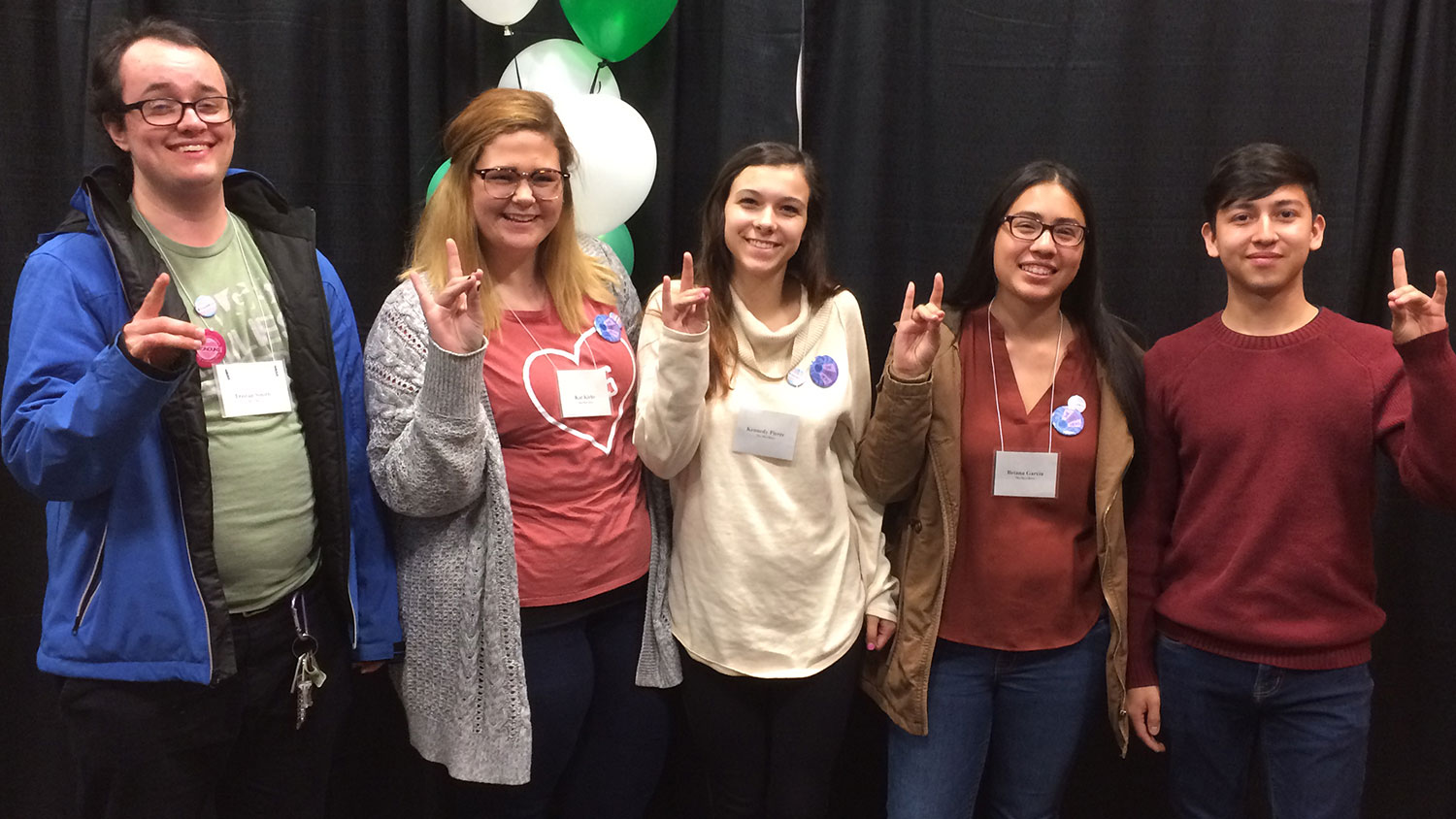
As part of their ongoing commitment to engaging students in high-impact learning opportunities related to social justice, the GLBT Center took five students to the annual student-led Equity in Action conference hosted by Appalachian State University during the first weekend in April. The two-day conference featured six one-hour workshop blocks with multiple concurrent sessions offered during each block as well as two keynote lectures. Critical reflection on how students can actively engage in working for equity, inclusion and social justice in the various contexts of their lives emerged as a central theme of the conference.
In their reflections on the experience, all of the NC State students who attended agreed that the experience helped them feel more connected to other students who are fighting for social justice on campus. The students also shared their ideas about initiatives they would like to see implemented at NC State. One student noted that “a lot of the time, social justice spaces don’t talk about disability.” The student commented that they would like to see “more education about disability issues” at NC State, especially “disability and how it intersects with other identities.” Another student advocated for an “annual workshop that teaches about Latinx experiences.” Multiple students noted that they would like to see “more peer-led social justice initiatives and events,” including “a social justice conference.”
To be more equitable and committed to social justice, “institutions need to change to fit the presence of people of color (POC) instead of POC changing to fit the institutions.”
All of the students were strongly impacted by the closing keynote lecture by Dr. Jamila Lyiscott, who discussed “How Broken English Made Me Whole: The Politics of Race and Language.” Students commented on the powerful messages of her story, several of them highlighting “how language policing harms communities of color and how important it is to celebrate linguistic diversity.” Another critical takeaway for students was the role of “academic settings” in sending a message that some cultures and languages are valued less than others and that, to be more equitable and committed to social justice, “institutions need to change to fit the presence of instead of POC changing to fit .”
Renee Wells is director of the GLBT Center.